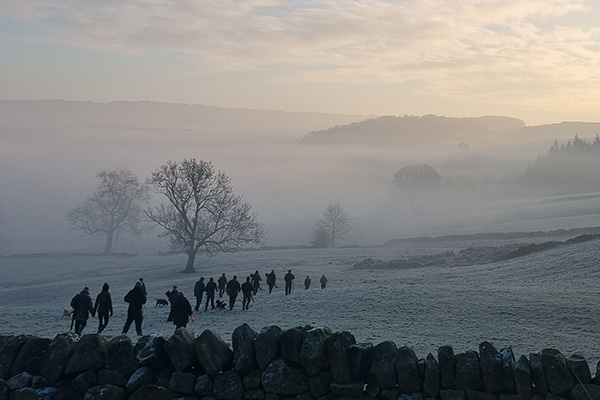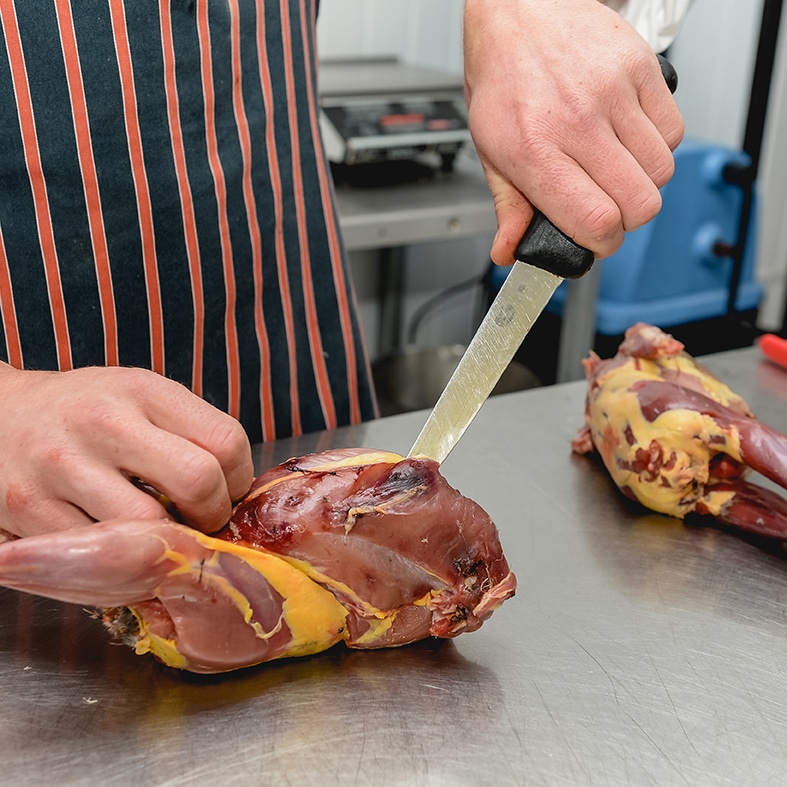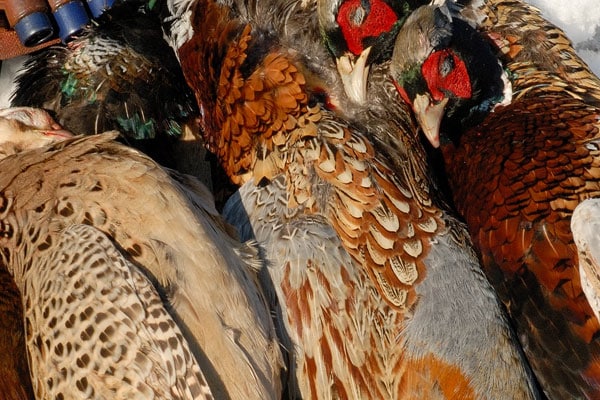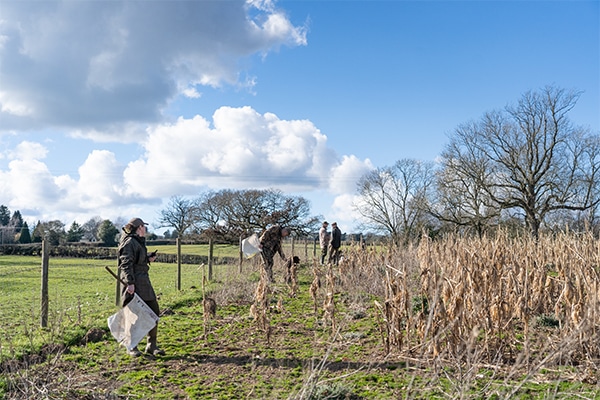
Sunday and Christmas Day Shooting
There are a range of orders and statutory restrictions on the shooting of game on Sunday and Christmas Day.
Get information on the legal shooting season for mammals and birds in the UK.
Apply for funding for your project or make a donation today
Comprehensive information and advice from our specialist firearms team.
Everything you need to know about shotgun, rifle and airgun ammunition.
Find our up-to-date information, advice and links to government resources.
Everything you need to know on firearms law and licensing.
All the latest news and advice on general licences and how they affect you.


One of the Code of Good Shooting Practice’s five golden rules is that game is food and must always be treated as such.
The code outlines basic principles to ensure the correct handling of any shot game.
This additional guide gives further advice on practical steps and guidance to ensure that game is always supplied to the end user in the best condition and that all relevant food hygiene regulations are followed.
The legal requirements will differ depending upon who the end user is, i.e. if it is consumed by the person who shoots it, their family or if it is sold.
Those who supply game to third parties are strongly advised to read the Wild Game Guide which explains these legal requirements in more detail.
The basics of good handling of shot game includes keeping it clean, protecting it from contamination, rapid cooling and correct storage until it is processed.
Regulations associated with the sale of game require it to undergo rapid cooling and that small game is stored at 4 oC or lower. For most shoots which store game for sale this will mean the need to use a suitable chiller. An exception would be when the ambient temperature is below 4 oC.
The process of good game handling begins as soon as the shot bird is in the hand. Shoot participants such as guns and pickers-up should put shot game in ‘game carriers’ which aid the cooling process, rather than closed bags.
Game left at a peg or a collection point on the shoot should be protected from contamination by animals and pests and positioned so that rapid cooling is encouraged.
Good circulation of air helps cool game quickly, especially on warm early season days, so space birds out – lay them separately, and on their backs – never leave them in heaps as they will quickly begin to deteriorate.
Any birds which are damaged or unfit for consumption should be kept separate from the consumable game. When game is being transferred to a suitable storage facility, a separate game cart or designated area within a vehicle should be used, again keeping space between the birds to encourage airflow between them.
Shot birds should be taken to the game larder regularly throughout the day.
Depending on the time of year different methods of handling may be required; the weather can be a significant influence. Birds will cool more quickly with good airflow and a breeze, whereas cooling on a still day takes longer. Aim to reduce the temperature of shot birds to the ambient temperature as quickly as possible. Then transfer to a larder where active chilling will bring the birds down to below 4 oC as quickly as possible. Move shot birds to chillers more regularly on warm days when birds cannot cool quickly.
Unless game is collected or delivered to a dealer or consumer while it is still undergoing the cooling process towards the ambient temperature i.e. on the day of the shoot, then correct storage facilities for any game which is sold must be in place.
The larder must be clean, fit for purpose, able to keep out flies and other contamination and be in good working order. It should be large enough to cater for all game shot without overcrowding.
At the larder, allow maximum airflow around the birds to continue the cooling process down to a safe 0c – 40c as quickly as possible. Avoid hanging birds against walls and ensure birds are not touching each other. Arrange collection or processing as early as possible.
Different rules and legal requirements apply to the supply of shot game, depending on how it reaches the end consumer.
For the shoot, this may include, as a primary producer, the requirement to be registered as a food business with the local authority and compliance with hygiene principles and rules.
Some shoots may opt to sell their game locally or to the end consumer but game dealers or approved game handling establishments (AGHEs) are a key feature in the sale and wider supply of game.
One element of the process of the sale of game to an AGHE is the requirement for a member of the shoot to be a ‘trained person’. This person inspects the shot game supplied from the day’s shoot and completes a declaration to confirm its status. Whatever course of action is taken, make sure it is legal and professional.
By working with your game dealer you will ensure that you supply the game in the best condition and receive the best price. Begin with early notification of shoot dates and anticipated bags so that arrangements are in place for prompt collection or delivery of all game after shooting.
Those collecting game should continue the correct handling procedures started by the shoot. The game dealer should always collect in a refrigerated vehicle and game should be stacked in suitable, clean trays to allow cooling and reduce cross-contamination.
If a shoot is delivering direct to the dealer it should have made prior arrangements to have a suitable number of game trays. If cooled overnight, birds should be placed on trays and transported to the dealer in a hygienic manner and as quickly as possible. The internal temperature of the birds when delivered should be below 40c.

There are a range of orders and statutory restrictions on the shooting of game on Sunday and Christmas Day.

This one-day course will ensure that shooters can meet the requirements regarding the sale and supply of game.

Provision of transport for shoot personnel; Guns, beaters, pickers-up, etc. is essential but often overlooked.
Sign up to our weekly newsletter and get all the latest updates straight to your inbox.
© 2025 British Association for Shooting and Conservation. Registered Office: Marford Mill, Rossett, Wrexham, LL12 0HL – Registered Society No: 28488R. BASC is a trading name of the British Association for Shooting and Conservation Limited which is authorised and regulated by the Financial Conduct Authority (FCA) under firm reference number 311937.
BASC Direct Ltd is an Introducer Appointed Representative of Agria Pet Insurance Ltd who administer the insurance and is authorised and regulated by the Financial Conduct Authority, Financial Services Register Number 496160. Agria Pet Insurance is registered and incorporated in England and Wales with registered number 04258783. Registered office: First Floor, Blue Leanie, Walton Street, Aylesbury, Buckinghamshire, HP21 7QW. Agria insurance policies are underwritten by Agria Försäkring.
If you have any questions or complaints about your BASC membership insurance cover, please email us. More information about resolving complaints can be found on the FCA website or on the EU ODR platform.